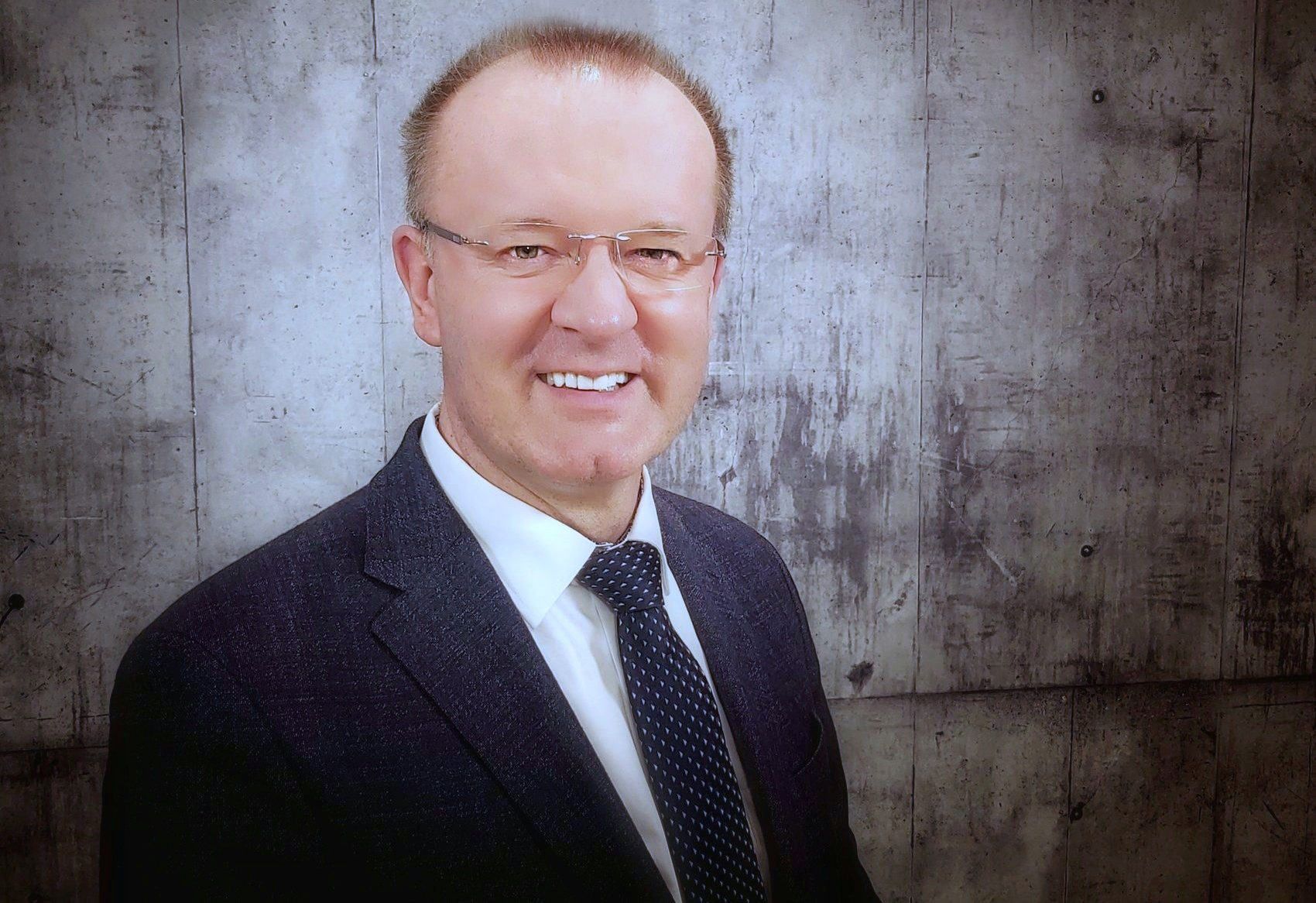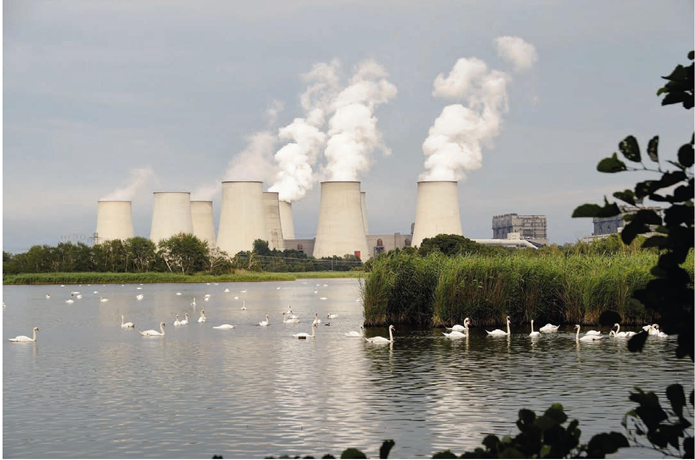Interview01.04.2021
Peter Hefele: We must become a zero-carbon society during 100 years

The Federal Republic of Germany occupies a leading position in the world in the use and implementation of "green energy". The Head of the Department Asia and Pacifiс region of The Konrad-Adenauer Foundation (KAS), Dr. Peter Hefele talks about the resources that make it possible to do this, and what are the prospects for the development of renewable energy market in the country and the world.
– Today Germany is one of the leading countries in the implementation of renewable energy sources. In the first half of 2020, the electricity generation from renewable energy sources in Germany reached the level of more than 56%. What processes and trends in the development of renewable energy sources are currently taking place in Germany?
– Progress has indeed been remarkable in terms of RE production capacities, mainly wind and solar. Yet, for the last two, three years we could observe a shift in priorities. The "Energiewende" (energy transition) is no longer solely about increasing capacities. It requires a cross-sectoral approach, the digitalization of distribution and consumption ("smart solutions") and trans-border harmonization within the European common market. In the field of energy production, we will see two different developments: a scaling-up such as even larger off-shore wind production plants and small-scale distributed smart systems on the level of communes and households. Intelligent grid systems and storage solutions are key.
As RES are becoming a major factor in global energy politics, Germany has to review its foreign relations and take into account massive disruptions and redistribution of power in a new era of geopolitics, which will be shaped by the effects of decarbonisation, too.
– In light of the development of RES, an important issue is the use of RES by population and households. Germany is also a leader in this area. What was the key to the development of small-scale renewable energy projects among the population: government support, high electricity tariffs s or the “green” trend in general?
– Starting from the 1960s we still have a strong ecological movement in Germany. Public awareness about environmental issues is high and got even more important in the context of climate change. There is broad consensus across almost all political parties that there is no alternative to urgently decarbonize our way of producing and consuming energy (and other natural resources). So far people have been willing to shoulder the financial burdens which come along with this transformation and sum now up to 30 billion EUR per year.
There is a whole range of subsidies and administrative measures to rapidly increase the installation and integration of RES into the existing grid system. But due to the high costs of this strategy, reforms had to be undertaken to introduce more market-based instruments and at lower costs. Other nations have carefully observed this policy approach and will not necessarily follow the same path.
– Recently in Germany, it was announced that by 2035-2038 the country will completely refuse the production of electricity from coal. Earlier, Germany also refused nuclear energy. In fact, this has shaped the global energy transition agenda toward greening the energy sector. What were the main reasons for such revolutionary decisions? How do you see the energy future in 2050 in your country and globally?
– From an outside perspective, the steps that were taken during the so-called "Energiewende" (energy transition) seem quite revolutionary. But they are actually in line with a longer transition of our energy system. Starting from the late 1970s, Germany has introduced a lot of measures to increase energy efficiency and support the installation of RES power plants. The transformation has sped up in the last decade due to the phasing out of nuclear power plants, which will cease operations next years and can be seen as a reaction to the catastrophe of Fukushima 2011.
Against the background of the ambitious goals of reducing carbon dioxide emissions by 65 per cent in 2030, it became clear that only by shutting down coal-fired plants, this objective can be achieved. With this double phasing out of nuclear and coal, we have to reinvent our whole energy system. And of course, many questions remain, i.e. how to provide stable and affordable energy; how to harmonize this decision within the framework of a common European energy market; and how to integrate other sectors such as transport or industrial production into these disruptive developments. All nations will - sooner or later - face the same challenges, and Germany will be a global pathfinder in this endeavour.

– Today, in the energy community, we can often hear the opinion that it is necessary to develop "clean coal" technologies, introduce carbon capture technologies and install powerful filters in traditional plants. To what extent can this direction of development of a sustainable economy compete with the development of green energy?
– The concept of Sustainability is much broader than the sole use of renewable energy. It includes other aspects such as a circular economy or even a social balanced development as laid out in the UN Sustainable Development Goals SDG. Any transformation policy will create - at least in a short-term perspective - winners and losers. Fuel-based economies, such as Kazakhstan, are in particular exposed to such risks. There is a broad consensus that we should achieve a zero-carbon society in the course of this century.
But the discussion about "clean coal" as an intermediary step shows that ways and means are heavily disputed. Some voices argue that any investment into coal-based solutions will only prolong the transformation process and resources should rather be completely shifted to RES from now on. Others point to the fact that for ecological and social reasons, coal will still remain the major source of energy and improvements in the production and use of coal will equally contribute to emission reductions and better environmental standards. In my opinion, Kazakhstan has to do both: exploiting its huge sources of RES and improving the use of fossil energy through higher efficiency.
– Thanks for the interview!
Scientists make electricity from air moisture using bacterial nanowires
EU keen to deepen renewable energy cooperation with Kazakhstan - ambassador
Drilling into magma: Risky plan takes geothermal to supercritical extremes
Record renewables propel the world towards a new era of falling fossil generation
Advanced 'high-density waterless hydro' energy plant gets green light
Eurostar aims to have all their trains powered by renewable energy by 2030
‘World’s first’ wooden wind turbine blades installed in Germany
Natron to kick off mass-production of long-life sodium-ion batteries
Tajikistan intends to fully switch to renewable energy sources by 2032 - deputy PM
Floating solar can power Africa’s energy goals, study finds
South Korean сompanies to modernize Kazakhstan's power plants, and GRES Topar
Decarbonization and sustainable development to take center stage at the 11th Annual Downstream Central Asia & Caspian Conference
Renewable electricity share in Turkey nears 50%
Sinn Power plans groundbreaking floating photovoltaic system in Bavaria
Swiss researchers boost efficiency of vertical axis wind turbines
Rapid expansion of batteries will be crucial to meet climate and energy security goals set at COP28
Georgia acquires first floating solar power plant
Wind turbine blades get a sustainable upgrade
China restricts offshore solar PV projects to specific sea areas
Biden announces $7 billion for solar energy in low-income communities












